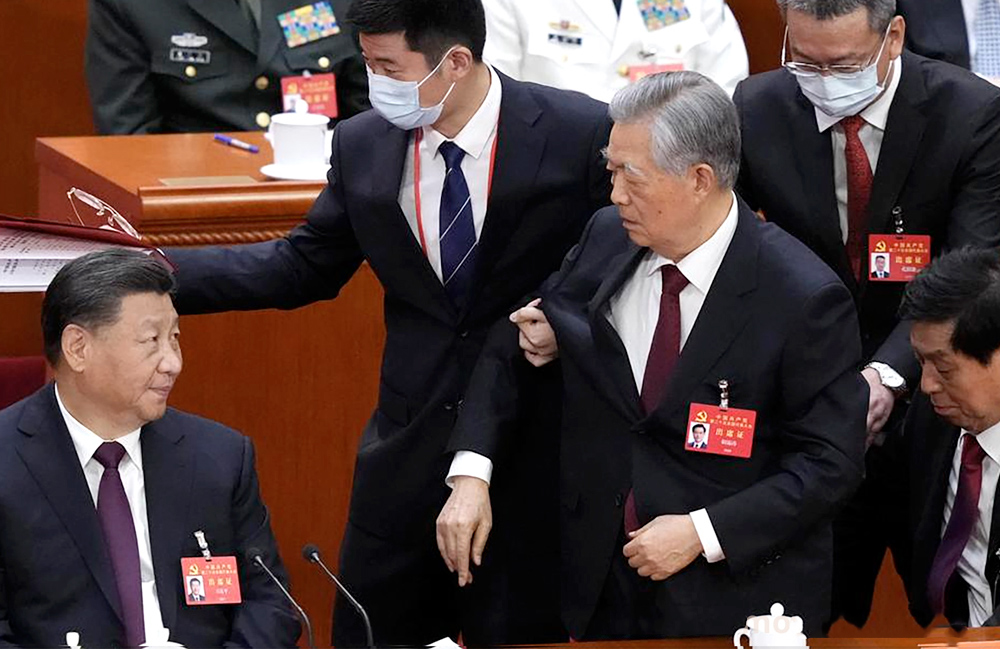
This weekend, at the 20th National Congress of the Chinese Communist Party (CCP), a unanimous vote of elite communist party officials gave President Xi Jinping his third five-year term.
But the story that made the headlines focused on the physical removal from the main chamber of Hu Jintao, the previous Chinese leader (2003–2013), on the final day. No one is sure what it means, but we cannot unsee the pattern.
“In 10 years of ruling China, Xi Jinping has expunged political rivals, replacing them with allies,” notes The New York Times. “He has wiped out civil society, giving citizens no recourse for help but his government. He has muzzled dissent, saturating public conversation with propaganda about his greatness.”
The Times forgot to mention the genocide against Uyghurs or the full extent of CCP censorship or repression or the stepped-up harassment and threats to invade democratic Taiwan, but the article does convey that Xi is a thug of totalitarian proportions.
“What is happening is potentially very dangerous,” Willy Wo-Lap Lam, a political scientist at the Chinese University in Hong Kong, argued back when the limit was repealed, “because the reason why Mao Zedong made one mistake after another was because China at the time was a one-man show.”
Those “mistakes” cost millions of Chinese their lives. One-man totalitarian rule is bad news for everybody everywhere. Xi’s personal power makes China more repressive at home as well as more dangerous and aggressive abroad.
“For Xi Jinping, whatever he says is the law,” Lam added. “There are no longer any checks and balances.”
Lam meant internally, but, for better or worse, we are likely to see what checks and balances and defenses there are outside of communist-run China.





